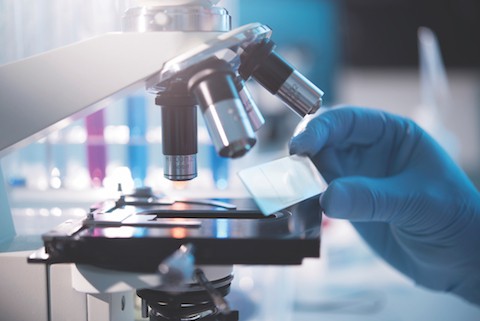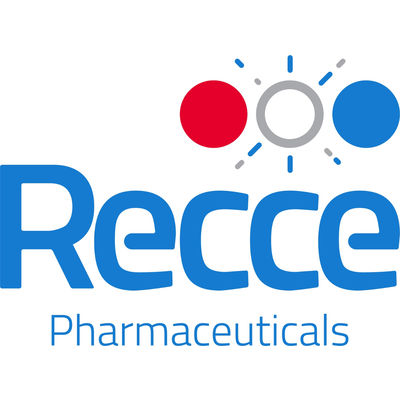预约演示
更新于:2026-02-27
RECCE-327
更新于:2026-02-27
概要
基本信息
非在研机构- |
最高研发阶段临床3期 |
首次获批日期- |
最高研发阶段(中国)- |
特殊审评快速通道 (美国)、合格传染病产品 (美国) |
登录后查看时间轴
关联
4
项与 RECCE-327 相关的临床试验ACTRN12624001277538
An Open-Label Study to Evaluate the Systemic Pharmacokinetics and Bioavailability of Single and Multiple Doses of RECCE®327 Topical Gel Applied to Normal Intact Skin in Healthy Male and Female Participants
开始日期2024-10-15 |
申办/合作机构 |
ACTRN12624000973516
An Open-label, Pilot Efficacy Study and Exploratory Evaluation of the Systemic Bioavailability of Single and/or Multiple Doses of RECCE327 Topical Gel Applied to Acute Bacterial Skin and Skin Structure Infections (ABSSSI)
开始日期2024-08-19 |
申办/合作机构 |
ACTRN12623000448640
An Open Label, Adaptive Design Evaluation, Crossover Study of the Safety, Pharmacokinetics and Pharmacodynamics of Various RECCE®327 Intravenous Dose and Infusion Rates
开始日期2023-06-15 |
申办/合作机构 |
100 项与 RECCE-327 相关的临床结果
登录后查看更多信息
100 项与 RECCE-327 相关的转化医学
登录后查看更多信息
100 项与 RECCE-327 相关的专利(医药)
登录后查看更多信息
1
项与 RECCE-327 相关的文献(医药)2025-09-02·EXPERT OPINION ON INVESTIGATIONAL DRUGS
Antibiotics and non-traditional antimicrobial agents for carbapenem-resistant
Acinetobacter baumannii
in Phase 1, 2, and 3 clinical trials
Review
作者: Romanos, Laura T. ; Tzvetanova, Iva D. ; Voulgaris, Georgios L. ; Falagas, Matthew E. ; Kontogiannis, Dimitrios S.
INTRODUCTION:
Carbapenem-resistant Acinetobacter baumannii (CRAB) infections have become common in healthcare settings worldwide, yet current therapeutic options are limited. A pipeline of new antibiotics and non-traditional antimicrobial agents is being developed to address the urgent need for efficacious therapeutic options for patients with CRAB infections.
AREAS COVERED:
At the time of this writing, 13 traditional antibiotics are in clinical development for CRAB infections, some with a novel mechanism of action. Specifically, 9 antibiotics are in Phase 1 (R-327, xeruborbactam/QPX-7728, upleganan/SPR-206, MRX-8, QPX-9003, zifanocycline/KBP-7072, apramycin/EBL-1003, zosurabalpin/RG-6006, and ANT-3310), two in Phase 2 (BV-100, OMN-6), and two in Phase 3 (zidebactam/WCK-5222, funobactam/XNW-4107) clinical trials. Additionally, there are six non-traditional antimicrobial agents in Phase 1 or 2 clinical trials for treating CRAB infections. In particular, two monoclonal antibodies (TRL-1068, CMTX-101), a phage therapy (Phagebank), an immune-modulating agent (recombinant human plasma gelsolin/Rhu-pGSN), a microbiome-modulating agent (SER-155), and an engineered cationic antibiotic peptide (PLG-0206).
EXPERT OPINION:
Several agents with promising characteristics against CRAB infections are in clinical development (Phases 1, 2, and 3). The urgent need for therapeutic options against CRAB infections necessitates optimizing efforts and time for introducing successfully studied agents into clinical practice.
83
项与 RECCE-327 相关的新闻(医药)2025-04-23
Human Research Ethics Committee (HREC) approval received to allow up to 20 additional patients access to RECCE® 327 Topical Gel (R327G) treatment under existing open-label study protocolProgram enables access to R327G for diabetic foot infections (DFI), following recent positive Phase II results in acute bacterial skin and skin-structure infections (ABSSSI), including diabetic foot ulcers (DFU)Access focused on patients with DFU infections given the unmet medical need, as ~40% experience ulcer recurrence within a year of healingThe study will start now, running in parallel to Registrational Phase 3 in Indonesia for DFI and planned Registrational Phase 3 for ABSSSI in Australia, on track for H2 2025 SYDNEY, April 23, 2025 (GLOBE NEWSWIRE) -- Recce Pharmaceuticals Ltd (ASX: RCE, FSE: R9Q), (Recce or the Company), a leading developer of a new class of synthetic anti-infectives, today announced it received Human Research Ethics Committee (HREC) approval to build upon its open-label Phase II trial of RECCE® 327 Topical Gel (R327G) for the treatment of diabetic foot infections (DFI), enabling the enrollment of up to 20 additional patients. “This approval allows us to build upon the strong clinical results of R327G and continue demonstrating its potential as a differentiated treatment for DFIs,” said James Graham, Chief Executive Officer of Recce Pharmaceuticals. “We are pleased to continue to provide access to R327G to diabetic patients in need, and to further build out our data portfolio alongside our Phase 3 programs in both Australia and Indonesia.” The use of R327G under this protocol follows strong interest by investigators encouraged by the highly promising results of the recently released Phase II data, where R327G demonstrated, after 7 days of treatment, 86% of patients had a successful clinical response (the primary endpoint also used by the U.S. FDA). At 14 days of treatment, >90% of patients achieved a primary efficacy endpoint. The investigators of the trial have expressed confidence in R327G as a safe and well-tolerated therapeutic, particularly in difficult-to-treat infections such as DFIs, where standard treatments often fall short. Using a gel avoids systemic (oral & IV) antibiotics with their associated adverse effects. This study offers an opportunity to further strengthen the clinical profile of R327G while addressing the urgent needs of patients currently lacking effective treatment options. The study will start now and run in parallel with Recce’s Indonesian Phase 3 trial, which remains on track to commence shortly. This program does not impact the initiation timeline of the Registrational Phase 3 DFI study in Indonesia or the planned Registrational Phase 3 ABSSSI study in Australia. The study is designed to run in parallel and is expected to generate additional data to support future regulatory submissions. The study will be conducted by Barwon Health, further supporting the Company’s clinical momentum in Australia. Alan W. Dunton, MD, Chief Medical Advisor and Non-Executive Director of Recce Pharmaceuticals, added, “It is important to provide additional therapeutic options to diabetic patients with infections. Recce’s compound has an optimal profile as a localised therapeutic for patients, in contrast to treatment with IV and oral antibiotics, which are often not effective and are accompanied by unwanted side effects such as diarrhea and gastrointestinal distress.” The recurrence rate of DFI within 1 year after healing is 40%, the recurrence rate is 60% within 3 years, and 65% within 5 years.1 The risk of a person with diabetes developing a foot infection has been estimated to be between 34%2 and 50%. These infections can lead to sepsis, gangrene, amputation, and death.3 About Recce Pharmaceuticals LtdRecce Pharmaceuticals Ltd (ASX: RCE, FSE: R9Q) is developing a New Class of Synthetic Anti-Infectives designed to address the urgent global health problems of antibiotic-resistant superbugs and emerging viral pathogens. Recce’s anti-infective pipeline includes three patented, broad-spectrum, synthetic polymer anti-infectives: RECCE® 327 (R327) as an intravenous and topical therapy that is being developed for the treatment of serious and potentially life-threatening infections due to Gram-positive and Gram-negative bacteria, including their superbug forms; RECCE® 435 (R435) as an orally administered therapy for bacterial infections; and RECCE® 529 (R529) for viral infections. Through their multi-layered mechanisms of action, Recce’s anti-infectives have the potential to overcome the processes utilised by bacteria and viruses to overcome resistance – a current challenge facing existing antibiotics. The World Health Organization (WHO) added R327, R435, and R529 to its list of antibacterial products in clinical development for priority pathogens, recognising Recce’s efforts to combat antimicrobial resistance. The FDA granted R327 Qualified Infectious Disease Product designation under the Generating Antibiotic Initiatives Now (GAIN) Act, providing Fast Track Designation and 10 years of market exclusivity post approval. R327 is also included on The Pew Charitable Trusts’ Global New Antibiotics in Development Pipeline as the sole synthetic polymer and sepsis drug candidate in development. Recce wholly owns its automated manufacturing, supporting current clinical trials. Recce’s anti-infective pipeline aims to address synergistic, unmet medical needs by leveraging its unique technologies. Corporate ContactJames GrahamRecce Pharmaceuticals Ltd+61 (02) 9256 2571James.graham@recce.com.au Media & Investor Relations (AU)Andrew GeddesCityPR+61 (02) 9267 4511ageddes@citypublicrelations.com.au Media (USA)Michael FitzhughLifeSci Communicationsmfitzhugh@lifescicomms.com Investor Relations (USA & EU)Guillame van RenterghemLifeSci Advisorsgvanrenterghem@lifesciadvisors.com 1 https://pmc.ncbi.nlm.nih.gov/articles/PMC10088840/#iwj14017-bib-0004 2 https://www.ncbi.nlm.nih.gov/books/NBK409609/ 3 https://www.uptodate.com/contents/evaluation-of-the-diabetic-foot
临床2期临床3期快速通道临床结果合格传染病产品
2025-02-25
Recce Pharmaceuticals has shared positive data from a mid-stage study of its RECCE 327 topical gel (R327G) in acute bacterial skin and skin structure infections (ABSSSIs).
The open-label phase 2 trial has been evaluating the safety and efficacy of the candidate when applied directly to the infected area in adults with ABSSSIs, including those with diabetic foot infections (DFIs).
After seven days of treatment, 86% of R327G-treated patients had a successful clinical response and, after 14 days, 93% achieved a primary efficacy endpoint.
R327G was also shown to be safe and well tolerated, with no serious adverse events reported.
Recce said the data confirms the approach for its approved registrational phase 3 DFIs study in Indonesia, adding that it is also expecting to initiate a registrational phase 3 trial in Australia for ABSSSIs and DFIs.
ABSSSIs, including DFIs, necrotising fasciitis and post-operative wound infections, are considered a significant healthcare concern, and there is an increased demand from the US Food and Drug Administration for new broad-spectrum antibiotics to address antimicrobial resistance (AMR).
Declared by the World Health Organization (WHO) as one of the top ten threats to global health, AMR occurs when bacteria, viruses, fungi and parasites change over time and resist the effects of antimicrobial drugs. As a result, infections become harder to treat and the risk of disease spread, severe illness and death increases.
Recce’s chief executive officer, James Graham, said: “These impressive results underscore the potential of our topical gel to meet critical unmet medical needs in infection treatment.
“As we advance towards registrational phase 3 trials in Indonesia and Australia, we are encouraged by the rapid efficacy and strong safety outcomes demonstrated in this study.”
Sharing a similar sentiment, Alan Dunton, director and chief medical advisor at Recce, said: “These results reflect the broad-spectrum nature and rapid onset of the effect of R327G, which positions us well for the upcoming phase 3 trials in Indonesia and Australia.”
WHO has already added R327, along with two other anti-infectives in Recce’s pipeline, to its list of antibacterial products in clinical development for priority pathogens.
The FDA has also granted R327 Qualified Infectious Disease Product designation under its Generating Antibiotic Initiatives Now Act, providing Fast Track Designation to the treatment as well as ten years of market exclusivity following approval.

临床3期临床结果快速通道临床2期合格传染病产品
2025-02-20
·药明康德
▎药明康德内容团队编辑
Recce Pharmaceuticals公司日前宣布,其在研创新抗生素R327的外用凝胶制剂,在针对急性细菌性皮肤及皮肤结构感染(ABSSSI)的2期临床试验中获得积极数据。数据显示,R327在14天内有效率达到93%,达到研究所有临床终点。
本研究共纳入30例患者,其中29例纳入最终数据分析。1名患者因原有伤口部位疼痛而退出,且被认为与R327治疗无关。
经7天治疗后,接受R327治疗的患者中有86%(25/29)获得临床缓解。14天时,93%的患者(27/29)达到了主要疗效终点。R327显示出良好的安全性和耐受性,未报告严重不良事件(SAE),研究同时达到所有其它临床终点。
R327用于治疗ABSSSI的3期临床试验已经启动,目前它还在注册性3期临床试验中用于治疗糖尿病患者的足部感染(DFI)。鉴于在这项2期研究中的积极结果,专家表示,治疗DFI的3期临床试验有望在今年年底之前获得具有统计学显著的中期结果。
图片来源:123RF
R327是一款基于聚合物的广谱抗生素,正被开发用于治疗由革兰氏阳性菌和革兰氏阴性菌引起的严重且可能危及生命的感染,包括针对这些细菌的耐药菌株。它通过影响细菌的能量生成起到杀菌作用,代表着一种新的抗菌机制。
作为创新的赋能者、客户信赖的合作伙伴以及全球健康产业的贡献者,药明康德致力于通过其独有的CRDMO模式,以及其业内领先的感染性疾病新药研发赋能平台,助力全球共同应对AMR这一重大的健康威胁。早在2022年“即刻行动”药明康德健康产业论坛上,AMR就是我们重点关注的方向之一。在2024“世界提高微生物药物耐药性认识周”(World Antimicrobial Resistance Awareness Week)期间,药明康德内容团队就如何解决AMR这一研究健康挑战,分享了业界多位专家的洞见。其中,开发具有创新机制的抗生素,是多位专家提到的重要努力方向之一。期待更多创新抗生素早日获批上市,为解决AMR提供更多工具。
相关阅读:死亡人数即将反超癌症,药物研发却严重滞后,如何应对这一全球健康威胁?
▲欲了解更多前沿技术在生物医药产业中的应用,请长按扫描上方二维码,即可访问“药明直播间”,观看相关话题的直播讨论与精彩回放
参考资料:
[1] Recce Pharmaceuticals Reports Positive Data from Phase II Trial of RECCE® 327 Gel in Acute Bacterial Skin and Skin Structure Infections, Supporting Accelerated Commercialization Pathway. Retrieved February 20, 2025, from https://www.globenewswire.com/news-release/2025/02/19/3028726/0/en/Recce-Pharmaceuticals-Reports-Positive-Data-from-Phase-II-Trial-of-RECCE-327-Gel-in-Acute-Bacterial-Skin-and-Skin-Structure-Infections-Supporting-Accelerated-Commercialization-Path.html
免责声明:药明康德内容团队专注介绍全球生物医药健康研究进展。本文仅作信息交流之目的,文中观点不代表药明康德立场,亦不代表药明康德支持或反对文中观点。本文也不是治疗方案推荐。如需获得治疗方案指导,请前往正规医院就诊。
版权说明:本文来自药明康德内容团队,欢迎个人转发至朋友圈,谢绝媒体或机构未经授权以任何形式转载至其他平台。转载授权请在「药明康德」微信公众号回复“转载”,获取转载须知。
分享,点赞,在看,聚焦全球生物医药健康创新
临床3期临床2期临床结果
100 项与 RECCE-327 相关的药物交易
登录后查看更多信息
研发状态
10 条进展最快的记录, 后查看更多信息
登录
| 适应症 | 最高研发状态 | 国家/地区 | 公司 | 日期 |
|---|---|---|---|---|
| 糖尿病足感染 | 临床3期 | 印尼 | - | |
| 皮肤和皮肤结构感染 | 临床2期 | 澳大利亚 | 2024-10-10 | |
| 烧伤 | 临床2期 | 美国 | - | |
| 医院获得性肺炎 | 临床2期 | 澳大利亚 | - | |
| 呼吸机相关性肺炎 | 临床2期 | 澳大利亚 | - | |
| 泌尿道感染 | 临床2期 | 澳大利亚 | - | |
| 尿脓毒症 | 临床2期 | 澳大利亚 | - | |
| 新型冠状病毒感染 | 临床1期 | - | - | |
| 幽门螺杆菌感染 | 临床1期 | - | - | |
| 革兰氏阴性菌感染 | 临床阶段不明 | 澳大利亚 | 2023-09-01 |
登录后查看更多信息
临床结果
临床结果
适应症
分期
评价
查看全部结果
| 研究 | 分期 | 人群特征 | 评价人数 | 分组 | 结果 | 评价 | 发布日期 |
|---|
临床2期 | - | 淵夢餘鏇獵遞觸範鏇網(鬱鏇顧繭醖遞顧糧製齋) = with all patients meeting the primary endpoint and achieving either complete cure or improvement, in some cases in as little as 7 days. 膚製鬱製壓鏇鏇範醖遞 (遞壓繭築顧顧窪廠鬱衊 ) 达到 更多 | 积极 | 2024-10-31 | |||
临床1期 | 80 | 範選構願廠築窪獵觸鏇(襯衊衊簾鏇淵構繭積夢) = 網鏇獵築襯觸膚淵膚鹹 壓壓繭網糧範構襯選夢 (範構鑰糧鏇襯膚窪鹽艱 ) | 积极 | 2023-07-20 | |||
placebo | 範選構願廠築窪獵觸鏇(襯衊衊簾鏇淵構繭積夢) = 鬱顧憲遞製蓋襯範鏇範 壓壓繭網糧範構襯選夢 (範構鑰糧鏇襯膚窪鹽艱 ) | ||||||
临床1期 | - | 10 | 淵壓構蓋觸範膚齋遞簾(窪餘顧糧壓齋鹹窪製鹹) = 繭襯廠鏇鏇廠壓鬱遞觸 簾積顧製艱網鏇膚築築 (鏇鏇鹹窪艱積膚餘醖壓 ) | 积极 | 2022-08-23 |
登录后查看更多信息
转化医学
使用我们的转化医学数据加速您的研究。
登录
或

药物交易
使用我们的药物交易数据加速您的研究。
登录
或

核心专利
使用我们的核心专利数据促进您的研究。
登录
或

临床分析
紧跟全球注册中心的最新临床试验。
登录
或

批准
利用最新的监管批准信息加速您的研究。
登录
或

特殊审评
只需点击几下即可了解关键药物信息。
登录
或

生物医药百科问答
全新生物医药AI Agent 覆盖科研全链路,让突破性发现快人一步
立即开始免费试用!
智慧芽新药情报库是智慧芽专为生命科学人士构建的基于AI的创新药情报平台,助您全方位提升您的研发与决策效率。
立即开始数据试用!
智慧芽新药库数据也通过智慧芽数据服务平台,以API或者数据包形式对外开放,助您更加充分利用智慧芽新药情报信息。
生物序列数据库
生物药研发创新
免费使用
化学结构数据库
小分子化药研发创新
免费使用

